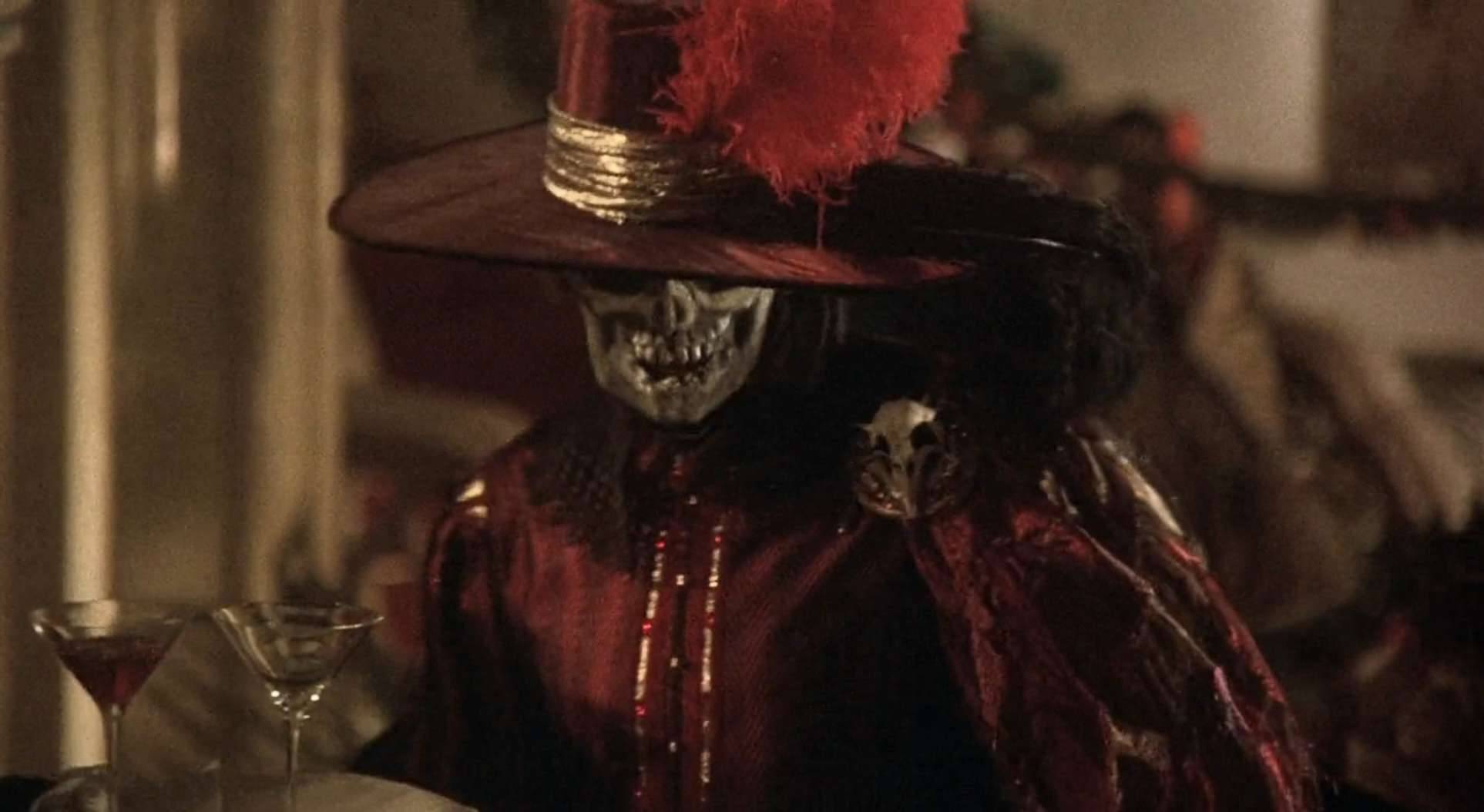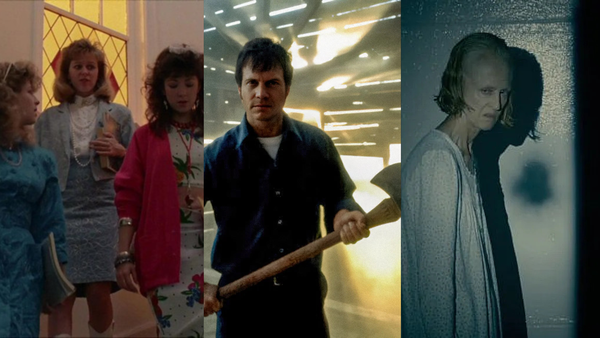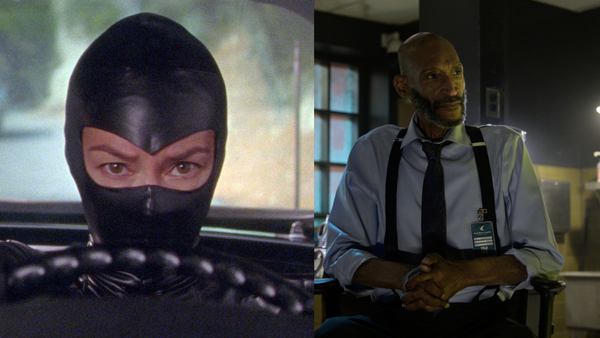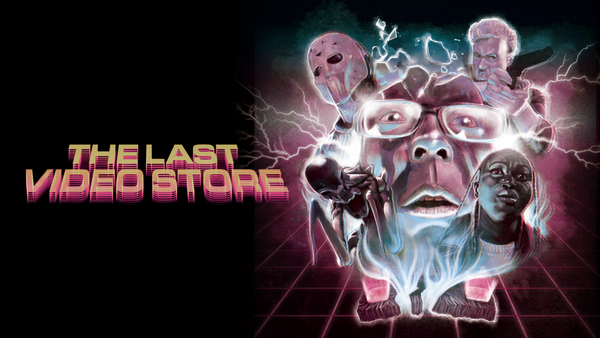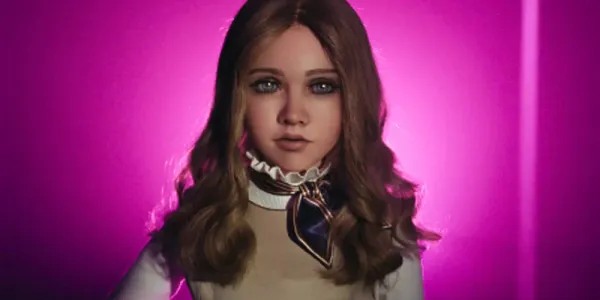Phantom Thread: The Phantom of the Opera (1989)
It's only a question of what you want: Love or Music.
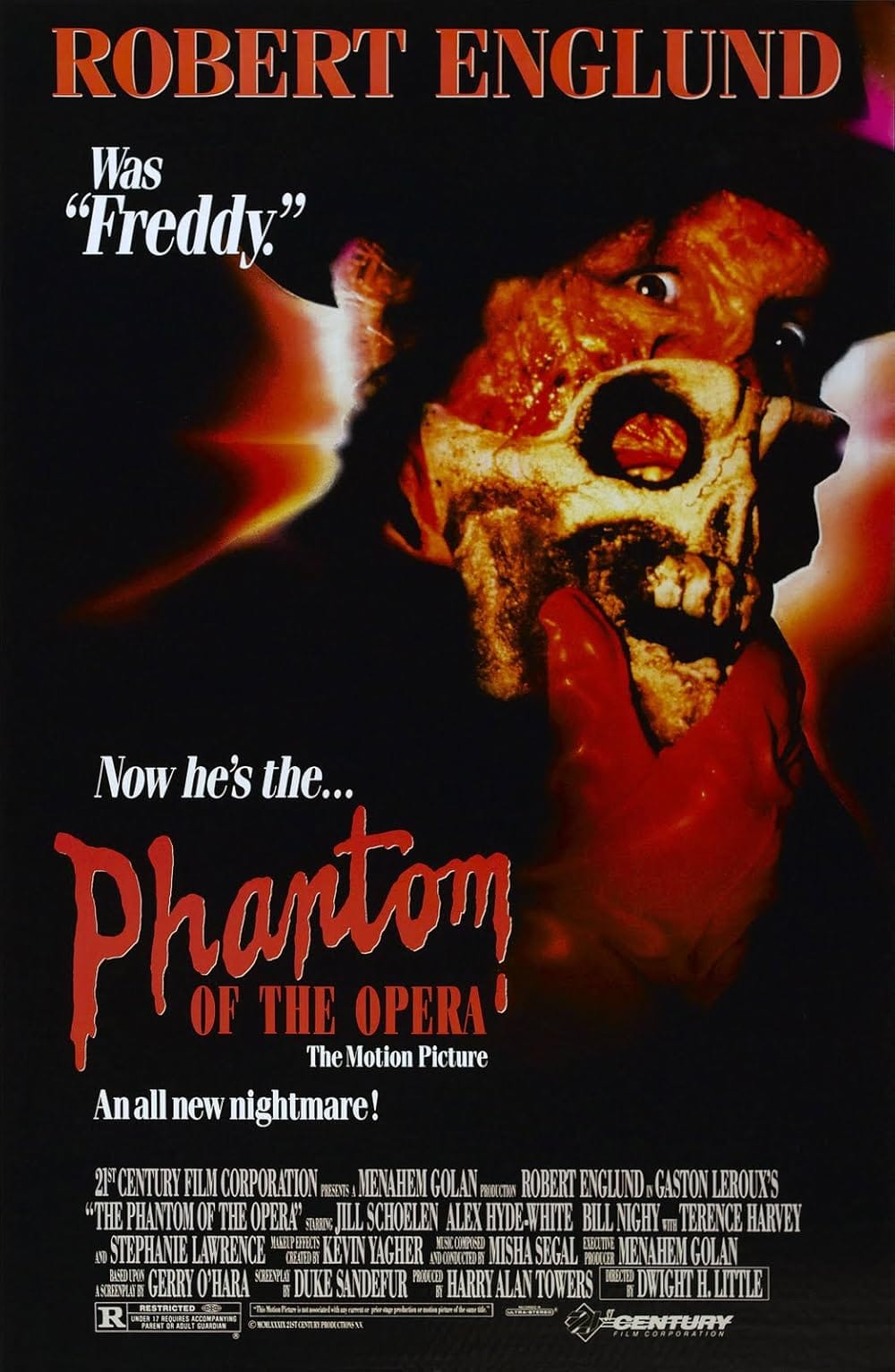
Hey, everyone! Years ago I started a passion project called Phantom Thread where I would take a look at different adaptations of The Phantom of the Opera. I ended up having to shelve the series because school and work got too busy, but after the recent 100th celebration of the original film on The Last Drive-In, it made me realize how much I missed doing these write-ups. So, here we are, and here is the first installment of my resurrected article series Phantom Thread.
One of the most prolific production studios of the 1980s was Cannon Films and during their run throughout the decade, there wasn’t a literary adaptation they didn’t take on. But towards the end of the ‘80s, as Cannon Films was taken over by Pathé Communications, Menahem Golan moved on to 21st Century Film Corporation and took a planned adaptation of The Phantom of the Opera with him. And in November 1989, that film hit the big screen with Halloween 4’s director Dwight H. Little at the helm.
Little’s iteration of The Phantom of the Opera wasn’t well-received during its theatrical run in 1989, but for 12-year-old Heather who discovered it the following summer on VHS, the movie was everything I could have wanted and more. Sure, it has some rough edges (what horror movie from the 1980s doesn’t?) but I loved how it gave us a contemporary story blended together with a classic tale of horror at the same time and that it featured my horror hero (then and now), Robert Englund as the eponymous character.
In this version of Phantom, Jill Schoelen portrays an aspiring singer by the name of Christine Day who gets knocked unconscious during an audition, an event that mysteriously transports her back in time to 19th Century London where she’s the understudy in the famed Opera House’s upcoming performance of Faust. The young ingenue dreams of stardom, something Christine is promised by a secretive musical angel who visits her to help her train for greatness on the stage. The thing is though, the angel that Christine has put her trust in is Eric Destler (Englund), a composer tormented by his shortcomings who has sold his soul to the devil in order to fulfill his musical ambitions.
This deal comes with a hefty price tag though — Eric is left horribly disfigured so that the world will only love him for his music, and nothing more.
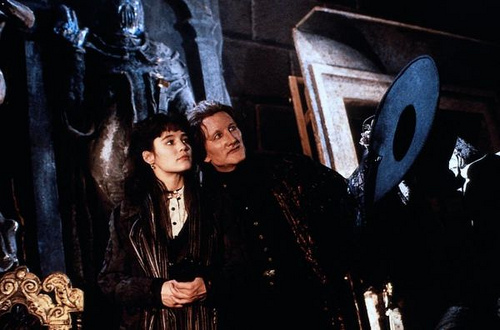
As Destler’s obsession with Day grows, he reacts by removing any obstacles that may stand in the way of the young starlet’s opportunity to take over as the lead of Faust, allowing his prodigy the chance to shine in front of an audience and hopefully win her heart along the way. As those familiar with the story of The Phantom know, Destler’s idea of romance ends up being a bit too violent for Day’s liking, forcing her to stand up to her twisted mentor before his deadly obsession costs her everything (and everyone) she cares about.
There’s a bit more going on with Little’s adaptation but for those of you who may have never experienced this version of The Phantom of the Opera before, I’ll keep those twists under wraps as they do work better if you don’t know what to expect. Suffice it to say, I think there’s a lot of really great stuff going on in this version of Leroux’s timeless tale of obsessive love and I think that the risks that both screenwriters (Gerry O'Hara and Duke Sandefur) take here story-wise work towards the benefit of the viewers to deliver a truly satisfying throwback horror movie that feels like a contemporized Hammer movie.
What’s so interesting to me is that this very much an adaptation of Gaston Leroux’s original story of The Phantom of the Opera but in so many ways, it also feels like an updated take on Brian DePalma’s Phantom of the Paradise which is pretty rad because Paradise rules so hard. There is the obvious Faust connection since that was a factor in DePalma’s film, the concept of a tortured musical genius essentially making a deal with the devil so that his music could be loved by all, and the fact that the musician wasn’t born disfigured (like in Leroux’s story) but had their visage mutilated by other means.
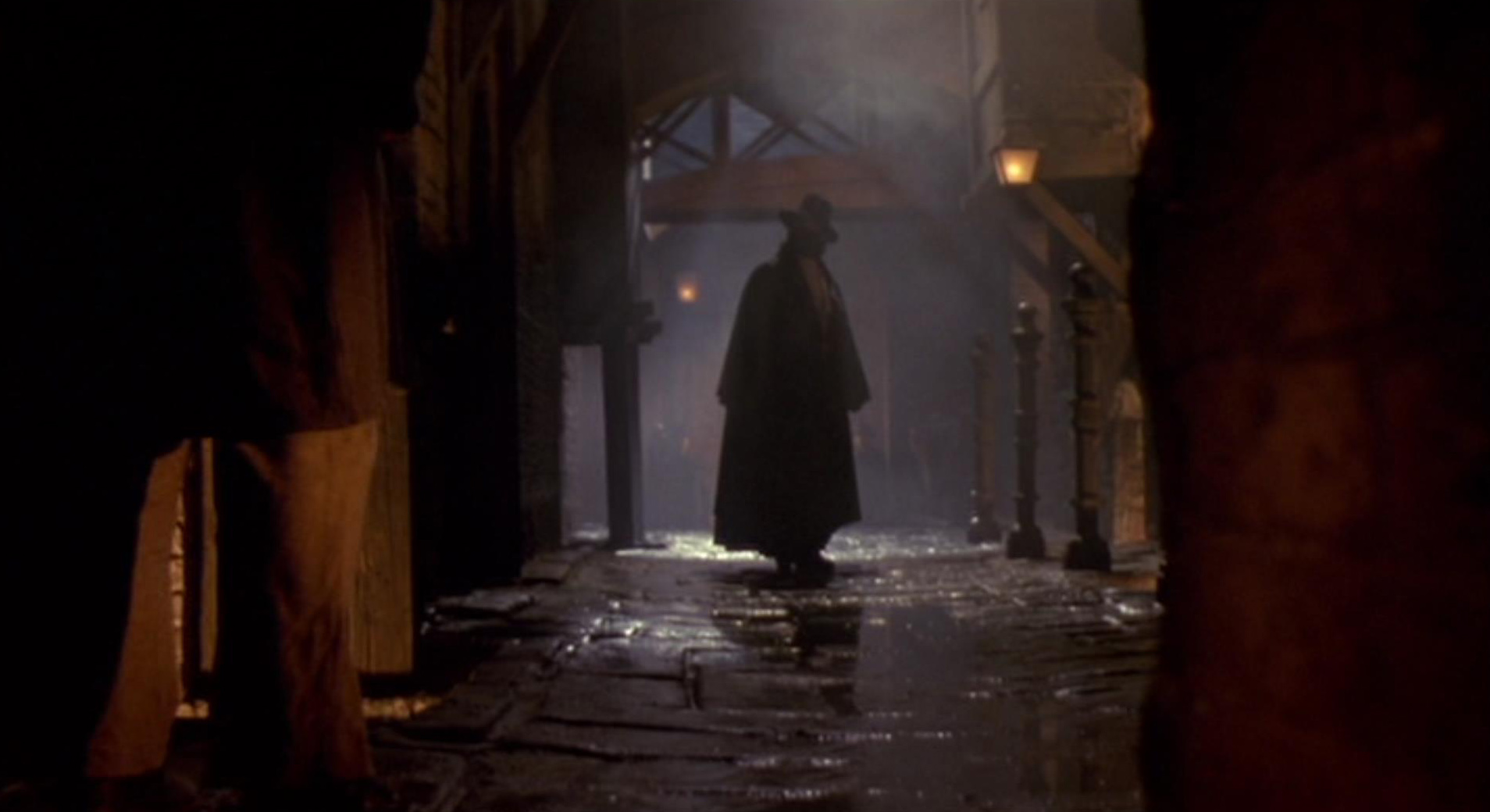
Something else I was also a big fan of was that this version of Phantom in more of a slasher-esque direction, allowing his iconic villain to embrace his nastier tendencies which is far more in line with the iconic character in Leroux’s story than anything associated with the name Andrew Lloyd Weber. I think a lot of this comes from utilizing 19th Century London as a back drop for most of the film, which gives off some creepy Jack the Ripper vibes.
The kills in this Phantom are gleefully visceral, making the film all the more effective as a slasher story as well as we get to bear witness to Destler’s misdeed in all their gory glory. Englund’s make-up as the horribly scarred Destler looks great too, with the villain’s alternative look (via attaching pieces of human flesh to hide his deformities) being an inventive touch on the character’s disfigurement. It was Kevin Yagher — who had worked with Englund previously on A Nightmare on Elm Street 2 and then on 976-EVIL which Robert directed — and his crew handling most of the intricately conceived effects in this Phantom of the Opera, and they are all just really fantastic.
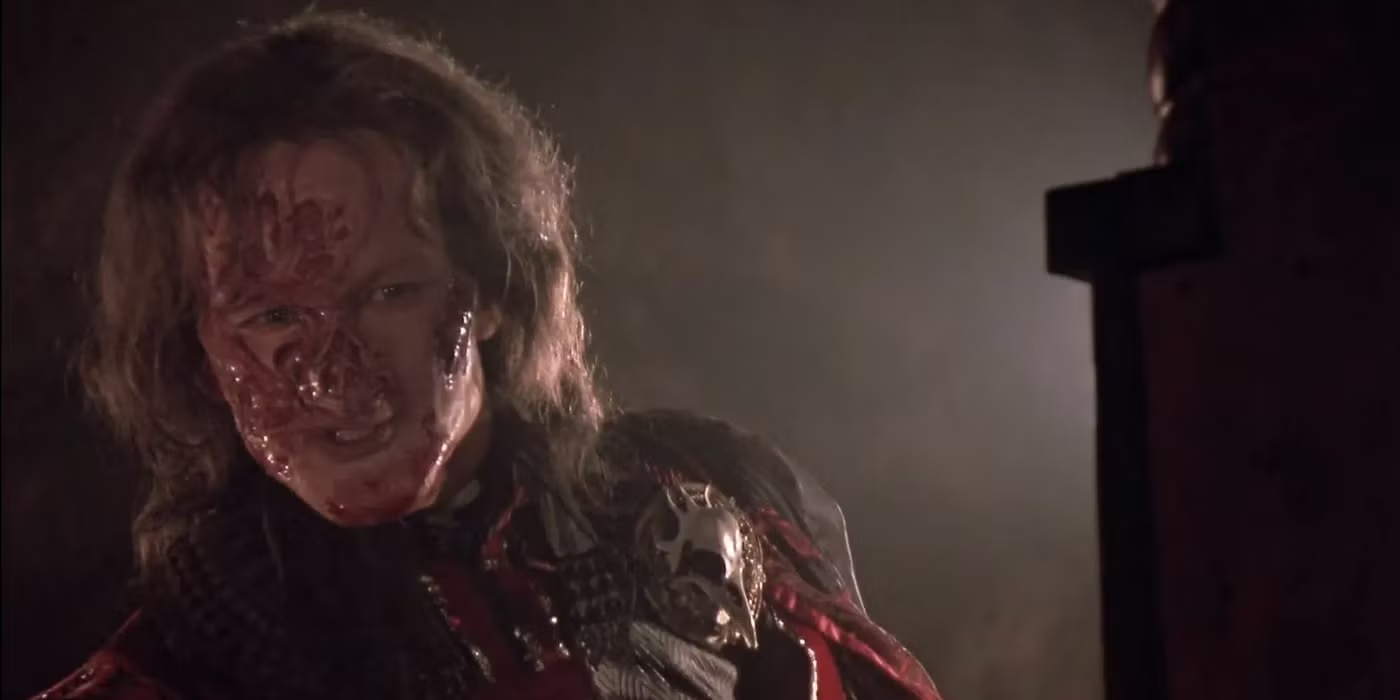
Of course, for most horror fans, watching Robert Englund take on the titular role for The Phantom of the Opera is probably the biggest appeal of this adaptation, especially considering how much of an aficionado Englund is for classic literature in real life. But beyond his fantastic performance, there’s so much more to appreciate, including Jill Schoelen (who many horror fans may know from films like The Stepfather or Popcorn) who is as adorable and charming as ever in The Phantom of the Opera.
Her performance is a warmly entertaining contrast to Englund’s cold-blooded killer tendencies and I love how it feels like this is one of the few adaptations where the character of Christine feels like she has some real agency to her, which isn’t something we see in a lot of the other cinematic versions of this story.
There are also a couple of other familiar faces in Phantom as well, including Bill Nighy (Underworld, Hot Fuzz) and Molly Shannon (Saturday Night Live), as well as veteran character actors Alex Hyde-White (Indiana Jones and the Last Crusade) and Mark Ryan (Transformers) who round out the supporting ensemble.
As far as Phantom adaptations go, Dwight H. Little’s version is so interesting to me because of the risks that it takes when it comes to its approach, how much fun it is to watch Englund just throw himself into this character, and how gruesomely dark the story gets at times. What’s interesting is that Menahem Golan wanted to make a sequel to this rendition of The Phantom of the Opera (which is why the story is framed in the modern day at the beginning and end), but the project never came to fruition, which I think is a shame because I would have absolutely been game to get immersed in this world one more time.
